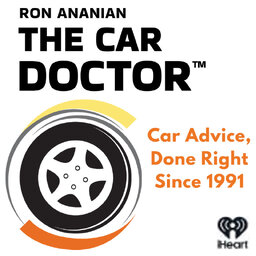Classic Car Doctor - September 2, 2007 - Hour 2, Second Half - Ron Ananian, The Car Doctor (855)560-9900
Ron takes a call to open this segment. Keith has questions about a vibration on his 02 Lincoln Town Car. Ron offers some old school basics of diagnostics for solving the problem. Next up, The Car Doctor goes into his Car Care Corner (a series of tips within the show). Today, Ron talks about servicing automatic transmissions; what to do, what to look for and how to get the longest service life out of the transmission.
In the next half of this segment, Bob from NJ calls in with questions about his VW's engine and transmission repair. Then Ron talks brakes on a 1997 Toyota Corolla. Bad vibrations and shakes; many have tried but no one has been able to diagnose the issue. The Car Dr, Ron Ananian to the rescue. He breaks (no pun intended) it down into simple to understand language for all.
To close this one out, Ron provides us with some final thoughts on the credit & car market in 2007; remember this time period was just prior to the great financial crisis of 2008. Interesting to look back and listen to!
- Find out more about us at www.cardoctorshow.com
- Follow Us On Instagram - @ronananian
- Visit our You Tube Channel for auto repair tips and videos
- Call Into The Car Doctor Hotline 24/7 (855)560-9900
- Live Call In Show Saturdays 2-4PM Eastern Time
In 1 playlist(s)
Ron Ananian The Car Doctor™
Ron Ananian, The Car Doctor, is a nationally recognized automotive expert, master technician, and tr…Social links
Follow podcast
Recent clips

Ron Ananian, The Car Doctor - February 7, 2026 - The EV Bill Comes Due: Burning Oil, Hot Trans Temps, and Parts Going Missing
35:04

Ron Ananian, The Car Doctor - February 7, 2026 - Hour 1 - It Started With a Vacuum Hose: When Auto Repairs Snowball
35:45

Ron Ananian, The Car Doctor - January 31, 2026 - Hour 2 - Batteries, Start-Stop Tech, CVTs & Cold-Weather Car Problems
34:50
 Ron Ananian The Car Doctor™
Ron Ananian The Car Doctor™